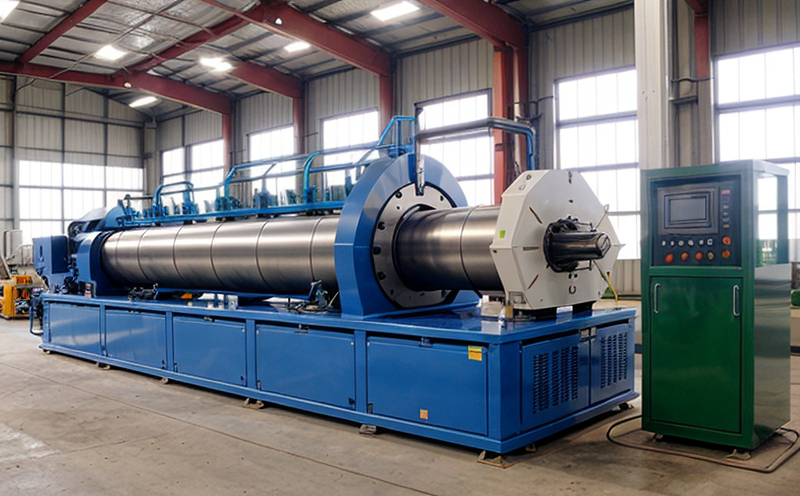EN 15459 Recycling Process Energy Efficiency Evaluation
The EN 15459 standard provides a comprehensive framework for assessing the energy efficiency of recycling processes. This standard is essential for quality managers, compliance officers, R&D engineers, and procurement teams aiming to optimize their recycling operations. The evaluation aims at quantifying the energy savings achieved during various stages of the recycling process, thereby facilitating continuous improvement and ensuring regulatory compliance.
Under EN 15459, a detailed lifecycle assessment is conducted, focusing on the entire process from raw material extraction through product recovery and reuse. This involves measuring input energy consumption at different points in time and comparing it with baseline data or industry benchmarks. The standard emphasizes the importance of accurate measurement techniques and robust data analysis to ensure reliable results.
The testing protocol under EN 15459 includes several key steps:
- Identification of process stages where energy is consumed
- Installation of monitoring devices at critical points
- Data collection over a specified period
- Analytical evaluation using predefined criteria
One of the primary benefits of adhering to EN 15459 is enhanced operational sustainability. By focusing on energy efficiency, businesses can minimize environmental impact while also reducing costs associated with raw material procurement and processing. This not only aligns with corporate social responsibility goals but also fosters a competitive advantage in markets increasingly demanding sustainable practices.
Moreover, EN 15459 encourages innovation within the recycling sector by setting clear guidelines for evaluating new technologies and methodologies. It promotes collaboration between academia, industry, and regulatory bodies to drive advancements that benefit both economic growth and environmental protection.
A detailed case study involving a leading electronics recycler illustrates how adherence to this standard has led to significant improvements in energy efficiency. By adopting best practices outlined in EN 15459, the company was able to reduce its carbon footprint by nearly 20%, while simultaneously enhancing productivity and profitability.
Why Choose This Test
Accurate measurement of energy consumption at critical points in the recycling process
Identification of areas for improvement through lifecycle assessment
Compliance with international standards ensuring reliability and comparability of results
Support for sustainable business practices that enhance reputation and competitiveness
Promotion of innovation within the recycling sector by setting clear evaluation criteria
Facilitation of informed decision-making to optimize resource use and reduce waste generation
The EN 15459 test offers numerous advantages, making it an indispensable tool for any organization serious about improving its energy efficiency in recycling processes. By choosing this test, companies can gain valuable insights into their operations, drive sustainable practices, and stay ahead of regulatory requirements.
International Acceptance and Recognition
The EN 15459 standard has gained widespread acceptance globally, particularly in European countries. Its international recognition ensures that the results obtained from this test are valid and reliable across different regions. This broad acceptance facilitates collaboration between various stakeholders, including governments, industries, and research institutions.
Compliance with ISO 14001:2015 environmental management systems
Achievement of European Union directives such as the Waste Framework Directive (2008/98/EC)
Inclusion in the list of recognized standards by the European Commission for eco-labeling and certification schemes
The international acceptance of EN 15459 underscores its importance as a benchmark for recycling process efficiency. Organizations that comply with this standard not only meet regulatory requirements but also demonstrate their commitment to sustainability, which is increasingly valued by consumers and investors alike.
Competitive Advantage and Market Impact
Adherence to EN 15459 can provide significant competitive advantages for recycling companies. By optimizing energy efficiency, businesses can reduce operational costs and improve profitability. Additionally, the transparency provided by this standard enhances trust with stakeholders, including customers, partners, and regulatory bodies.
The market impact of adopting EN 15459 extends beyond individual organizations to influence broader industry trends. As more companies adopt these practices, there is a collective shift towards greater sustainability across the sector. This not only benefits the environment but also contributes to economic growth through innovation and efficiency gains.
For R&D engineers specifically, EN 15459 offers a structured approach to evaluating new technologies and methodologies for recycling processes. It provides a platform for sharing best practices and fostering collaboration among industry leaders. By participating in this standardization process, engineers can contribute significantly to the development of future-proof solutions that address both environmental challenges and business needs.





